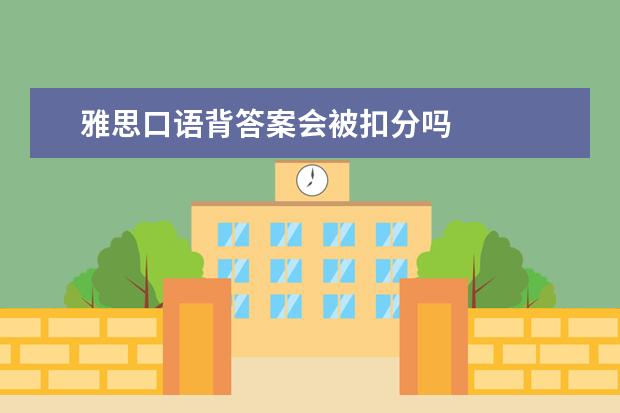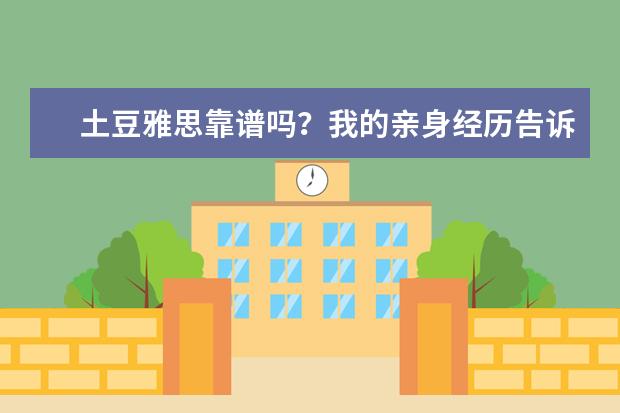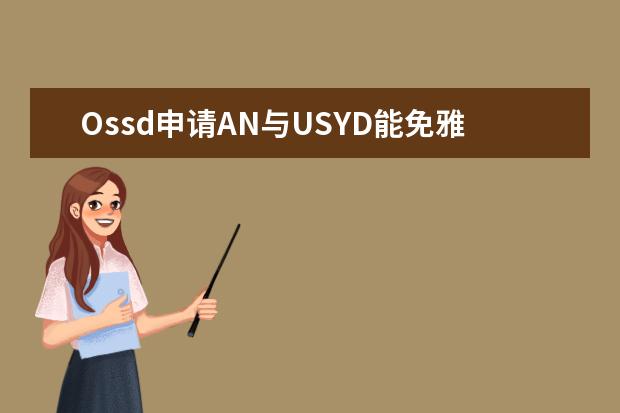雅思考试主要是通过对考生听、说、读、写四个方面英语能力的考核,综合测评考生的英语沟通运用能力,实现“沟通为本”的考试理念。对于雅思考生来说,也有很多考试难点和政策盲区需要帮助解答。今天雅思无忧网小编准备了雅思考试必背技巧口语答案 雅思口语Part 3的答题技巧演示。,希望通过文章来解决雅思考生这方面的疑难问题,敬请关注。

雅思口语答题技巧是什么
雅思口语分数从很大程度上取决于考生在考场上的表现力,因此考生们必须要掌握一些答题方法。下面为大家分享了雅思口语答题技巧是什么,同学们不要错过哦。
雅思口语答题技巧1.套用答案不可取
很多学生很喜欢在口语考试中给出一些stereotyped standard answers. 比如说,当学生一进门,考官说"How are you?"的时候,而大多数考生都会习惯性的回答"Fine, thank you. And you?" ;"你喜欢什么运动? ","football",这些也许是大家在考试里给出的答案。但是雅思口语考试的初衷是人与人的交流。因此雅思口语考试的评分并非真正意义上的100%客观依照考生的英语水平来决定的。
雅思口语答题技巧2.“well,you know”要慎用
有的考生把一些美剧看了,当口语考试里时常会意识的用到一些外国人讲话中的语句用来拖延时间以便让自己有更多的时间去整理思绪,更不可能有尴尬的“卡壳”情况出现,比如说“well, you know”等等。这样的语句偶尔使用是可以的,但若学生们滥用的情况下,那必会适得其反。大家在很多雅思口语考试范文中应该很少遇到这些词汇吧,所以说这些词汇还是要谨慎使用。
雅思口语答题技巧3. 不要讲“实话”
当准备第二部分时,大部分的学生会花更多的时间来想如何叙述这个故尺镇腊事。其实,这样做的话,既浪费时间,讲出的故事并不会对考官的注意力有影响。因此,有一个不错的技巧是去编一些故事,而不要去说实话。原因在于一般大家身边极少会有非常值得回忆的,值得讲述的故事或人出现。比如说当问到考生在哪里读旅衫书时,考生可以自豪地说我是来自某某大学,这所大学是全省乃至全国比较好的陵滑大学之一。
上面是给大家分享的雅思口语答题技巧是什么,期望考生们可以去认真阅读文章里的内容,若是还想要再了解有关这方面的信息,可以点击咨询上海环球青藤官方网站。
雅思口语part3做题技巧?我这部分总是分数比较低 - ...
洛阳大华雅思提醒您,
一)题目的性质从原来较为生活化的Part 1和Part 2转化为Part3中带有强烈学术意味的考题。比如How does scientific research benefitspace, medical, environmental and information technologies? 该题问科学研究给现代技术带来怎样的好处。
二) 很多考题不再注重具体的细节描述或陈述,而转向考察考生的抽象思维能力。比如Does money bring people more happiness or make them less secure? 该题问钱会给人带来幸福,还是使人更不安全。碰猜拿
三)有相当数量的题目会让考生去对某个话题进行评估(Asses*ent),特别是利弊方面的评估;还有些考题让你对未来进行猜兆局测(Speculation),让你说10年或20年之后某事物将会怎么样。比如In your opinion, what languages will become morepopular in the future? 该题要你猜测将来什么语言会变得流行起来。当然,你还必须说明理由。
总的来说,Part 3已经超越了日常生活层面,进入到人的深层思维体系之中。它着重的是四样东西:world views(世界观),beliefsystems(信仰体系),values(价值观),attitudes(态度)。要把这些东西说好,除了平时的语言功底和随机应变的能力以外,考生还需要具备一些人文方面的素养。
虽然Part 3的问题错综复杂,但根据笔者的教学及实战经验,我们完全可以把所有Part 3的考题分为以下的九个大类,每一大类都含有若干典型的问话套路:
一)阐述原因(Giving reasons)
Why do you think …?
Why is it important to do…
Do you think …? Why (not)?
Is it a good idea to (do…)? Why (not)?
二)预测未来(Providing speculations)
How do you see … changingin the future?
Do you think that in thefuture people will …?
What do you think willhappen to … in the future?
In your opinion,which/what … will become more … in the future?
三)描述侧面(Describing various aspects)
In what ways …?
What kind/sort/type of …?
How important is it for …to (do …)?
How has … changed (in yourcountry) in the last … years?
四)维护立场(Defending your choice)
Is it better to (do …) or(do …)?
笑搭Should people always … oris it a good idea sometimes to (do …)?
Which is more important toyou: … or …?
Which do people in yourcountry prefer: … or …?
五)利用常识(Using your common sense)
Any yes-no question thatinvolves a clearly positive or negative answer
Any question that asks youabout the roles, responsibilities and general qualities of a social group
Any question that asks youabout common knowledge, everyday experience and traditional culture
六)提供方案(Offering solutions)
What can … do to (do …)?
What can be done to (do…)?
What do you think is thebest way for … to (do …)?
Are there other wayspeople can …, apart from …? How?
七)因果关联(Connecting causes with effects)
What effect has … had on…?
How has … affected …?
Are there any negativeeffects of … doing …? What are they?
What do you think causes …to …?
八)对比异同(Comparing similarities and differences)
How does … compare with …?
How do you compare … with…?
Do you think … wasdifferent for your grandparents?
What are similarities anddifferences between … and …?
九)陈述利弊(Illustrating advantages and disadvantages)
What are the advantages anddisadvantages of …?
What are the differentadvantages of … and …?
What do you think theirdisadvantages are?
How do people in yourcountry feel about (a controversial issue)?
从《剑桥雅思》的口语出题风格来看,一般一套口语题的Part3部分会有6道问题,这一点大家可以参阅《剑一》到《剑七》的真题。下面的这套题从place到travel/touri*再到old buildings/historic buildings,提出了一系列问题:
Why do you think peoplelike to travel to different places?
→ 第一类:阐述原因(Giving reasons)
How do you see touri*changing in your country in the future?
→ 第二类:预测未来(Providing speculations)
Why is it important toprotect the countryside?
→ 第一类:阐述原因(Giving reasons)本文
In what ways is thecountryside in danger in your country?
→ 第三类:描述侧面(Describing various aspects)
Why are historic buildingsand monuments important to a city?
→ 第一类:阐述原因(Giving reasons)
Is it better to keep oldbuildings, or build new modern ones?
→ 第四类:维护立场(Defending your choice)
由此可见,任何Part 3的问题都可以归入以上九大类中的某一类。在本系列的后面九讲中,针对每一类问题的特殊性,为大家一一分析破解它们的方法,也希望广大“烤鸭”们能切实利用这些方法来为自己的考场发挥添砖加瓦。
总的来说,雅思口语考试Part 3作为考试中第三部分,也是最困难的一个部分,所以把握好总结的雅思口语考试Part 3答题技巧也就非常重要.
雅思口语Part 3的答题技巧演示。
今天,环球青藤朱滚睁国伟老师和大家分享一篇关于雅思口语Part 3的答题技大毕岁巧演示文章,值得大家阅读学习。更多精彩好文章,尽在环球青藤!雅思口语Part 3问题1:What are some reasons why people eat out ?雅思口语数唤Part 3的答题技巧演示1:It’s a tradition that we intend to treat our friends and family on some special occasions , especially on birthday , and some important days . a fancy restaurant can provide us decent dining environment , delicious cuisines and thoughtful service . by the way , these days , office workers are getting busier , they have no time to prepare home cooked food , eating outside is the only remaining option .雅思口语Part 3问题2:Do you prefer to eat at a restaurant or eat at home ?雅思口语Part 3的答题技巧演示2:I prefer to eat at home . my mother is good at cooking , she usually prepares a table of delicious dishes at home . by the way , my country has a notorious reputation of food security . so eating at home is much safer.雅思口语Part 3问题3 What are the differences between eating at home and eating at restaurants ?雅思口语Part 3的答题技巧演示3: Eating at restaurants , you may enjoying a decent dining environment , cuisines with different taste and flavor , and thoughtful service . compared to eating at restaurant , dishes prepared at home are simple but balanced and nutritious .雅思口语Part 3问题4In my opinion what is healthy food ?雅思口语Part 3的答题技巧演示4: A healthy meal should be balanced and nutritious . in each meal , we need to intake various vegetables , different kinds of fruits and many types of proteins . by such way , we may maintain a good physical health .雅思口语Part 3问题5What are some examples of unhealthy food ?雅思口语Part 3的答题技巧演示5:In my opinion , there are many types of unhealthy food , like western style fast food , desserts with high calories , and food sold at street vendors . food like French fries , hamburgers are very harmful to our health .以上即是本次环球青藤口语老师朱国伟的关于雅思口语Part 3的答题技巧演示文章分享。逻辑能力强,精通口语词汇。对于欧美的文化很了解。多年的教学经验帮助了不少雅思考生顺利进入理想学府,桃李满园。相信他的这篇文章必定能给与烤鸭们不少帮助和启发。如果对于我们雅思课程想了解更多的话,欢迎与环球青藤课程顾问做进一步的咨询与了解,这里有不同的单项课程以及全项课程,适合不同要求的你!后,环球托福预祝各位雅思考试取得!早日圆满出国留学梦!
雅思口语的答题技巧有哪些
你好,雅思口语有哪些答题技巧?
-
对于备考时间较长的考生,建议本着务实求真的精神,彻彻底底将口语基础姿戚陵打牢。切记,口语和写作都是真正揭晓实力的两门,绝不能依仗技巧取胜。有经验的考官不会完全照读考题,而是会为你“量身定做”(Tailor-made)顺势出题。
-
减少描述,增加议论。评价性的语言通常比描述更为具体。
-
变抽象为具体。很多考生觉得口语话题难,就是因为没话说,特别是看似较为抽象的话题,如Describe a success。总觉得success肯定是较为光鲜的事迹,对照自己似乎找不到素材。其实如果把success具体化,看作是successfully did sth,构思就会容易许多。
-
扭转乾坤,话题巧转移。口语考试重形式而非内容,只要能巧妙自然地将拿仔猜到的话迹戚题转到自己觉得熟悉的内容上来,必定会有更好的效果。
希望能够帮到同学!
雅思口语考试时哪些问题考官必问?必问十四条 - 百度...
对待口语考,很多同学感觉到茫然,不知道考官会问自己什么问题,万一问到自己从来没准备过的怎么办呢?为了避免这种情况的发生,上海
雅思培训班今天为大整理了考官必问的14个话题,希望对同学们能有所帮助。
必问十四条:
你的名字是什么?What’s your name?
你的名字有什么特殊意义吗?Does your name have any special meaning?
你来自哪里?Where were you come from?
你的乡有什么代表性景点吗?What kind of landscape surrounds your hometown?
你乡的主要农作物是啥?What is the main crop in your hometown?
你的乡和背景有什么不同之处吗?What is the difference between Beijing and your hometown?
你的乡有什空团么名胜古迹吗?What are the main places of interest in your hometown
你的乡以什信亏老么气候为主What is the climate like in your hometown
你的乡人性格如何?What is the character of the people like in the region where you live?
你的乡人民和北京人民有什么区别吗?What are the difference in accent between the people of your hometown and Beijing?
你们那里喜滑升欢吃什么食物?What is people’s favorite food in your region?
如何包饺子?How do you make dumplings
你在春节一般做些啥?What do you do during the Spring Festival
为什么中人民如此看重春节这个传统节日?Why is the Spring Festival so important to Chinese people?
以上就是雅思无忧网为您准备的雅思考试必背技巧口语答案 雅思口语Part 3的答题技巧演示。全部内容。访问雅思无忧网(https://www.yasi.cn/),了解更多雅思考试新消息,新动态。
免责声明:文章内容来自网络,如有侵权请及时联系删除。


 雅思口语背答案会被扣分吗
雅思口语背答案会被扣分吗
 土豆雅思靠谱吗?我的亲身经历告诉你答案
土豆雅思靠谱吗?我的亲身经历告诉你答案
 Ossd申请AN与USYD能免雅思 - 答案如何,一起看看!
Ossd申请AN与USYD能免雅思 - 答案如何,一起看看!
 9月19日首都师范大学雅思口语考试安排 雅思UKVI中国考点-UKVI雅思考试特点全面分析及全国考点清单
9月19日首都师范大学雅思口语考试安排 雅思UKVI中国考点-UKVI雅思考试特点全面分析及全国考点清单
 请问5月10日大连雅思口语考试时间 大连雅思考试报名条件及时间
请问5月10日大连雅思口语考试时间 大连雅思考试报名条件及时间
 4月26日太原雅思口语考试时间公布(山西太原市10月份雅思考试时间汇总)
4月26日太原雅思口语考试时间公布(山西太原市10月份雅思考试时间汇总)
 请问8月9日贵阳雅思口语安排 贵阳雅思报名日期
请问8月9日贵阳雅思口语安排 贵阳雅思报名日期
 12月5日湖北大学雅思口语考试安排(8月29日湖北武昌实验中学考点雅思口语考试安排)
12月5日湖北大学雅思口语考试安排(8月29日湖北武昌实验中学考点雅思口语考试安排)
 请问8月9日贵阳雅思口语安排(请问贵阳考点1月18日雅思口语考试时间提前)
请问8月9日贵阳雅思口语安排(请问贵阳考点1月18日雅思口语考试时间提前)
 报读雅思口语课程一对一价格多少?
报读雅思口语课程一对一价格多少?